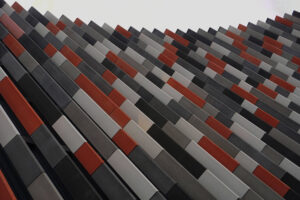Controversy in the Science Classroom: Nature of Science Quiz
At a Glance
Discipline
- STEM
- Physics
Instructional Level
- College & CEGEP
Course
- Teaching Science to Young Learners [365-TSC-AB]
- Sports and the design of sporting equipment [203-DAB-03]
Tasks in Workflow
Social Plane(s)
- Individual
- Group
- Whole Class
Type of Tasks
- Discussing
- Analyzing
- Taking a quiz & test
Technical Details
Useful Technologies
- Online forum platform, like Visual Classrooms
- For online classes you can use Microsoft forms or another platform that conducts individual quizzes
- For online classes you'll need a platform with the ability to form breakout groups
Class size
- Small (20-49)
Time
- Single class period (< 90 mins)
Instructional Purpose
- Preparation & knowledge activation
- Consolidation & metacognition
Overview
This activity aims to bring about conceptual change by making explicit common misconceptions about the nature of science (NoS), with the ultimate goal of helping students attain a balanced view of NoS. This activity begins with an agree/disagree quiz on NoS (individual, then group). After pausing for an introductory lesson, the class discusses the quiz and then for homework, students post, and respond to, reflections on what they have learned including which questions are still “bugging them” and why.
By giving students the space and guidance to discuss, argue and finally reflect and critique, this activity helps students achieve a more nuanced and balanced view of NoS, allowing them to be more informed, critical thinkers in a science-dominated world.
Coming from a social constructivist theoretical perspective, this activity borrows from the 2-stage assessment and reflective writing strategies. It is designed to “wrap around” a short introductory lesson on the NoS so if you are teaching an entire unit on the nature of science, this activity should take place during the first lesson.
*Note that the short introductory lesson on NoS (card game) is not part of this activity. To get an idea what Phoebe has done in the past, see the lesson plan document, but many things could work here, as long as it introduces some of the basics of NoS.
Instructional Objectives
Students will be able to:
- Justify the expert response for a range of statements on the nature of science, exemplifying a balanced view of the nature of science.
- Explain, with specific examples, how science is dynamic yet reliable, striving for objectivity yet inherently subjective, and powerful yet limited.
Workflow & Materials

Activity Workflow
Applied Strategies
Published: 10/01/2023
Copyright: © 2024 Jackson. This is an open-access article distributed under the terms of the Creative Commons Attribution License (CC BY). The use, distribution or reproduction in other forums is permitted, provided the original author(s) and the copyright owner(s) are credited and that the original publication on this website is cited, in accordance with accepted academic practice. No use, distribution or reproduction is permitted which does not comply with these terms.



